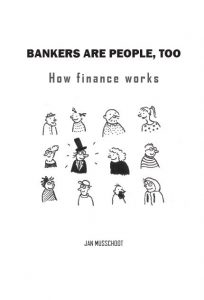De meeste Vlaamse bezoekers van deze blog komen voor mijn posts over Tax-on-Web en pensioensparen.
Als je geïnteresseerd bent in beleggingsfondsen, dan raad ik MijnKapitaal.be aan. MijnKapitaal.be is een onafhankelijke website die zich richt op particulieren. Naast nuttige vergelijkingen van spaar- en beleggingsproducten, vind je er bijvoorbeeld ook info over fiscaliteit.
In zijn opiniestuk Niet voor onbevoegden legt Marc Person uit dat de banken en de overheid niet willen dat je “te slim” zou worden als het om geldzaken gaat. Net daarom zijn sites zoals MijnKapitaal.be broodnodig.


